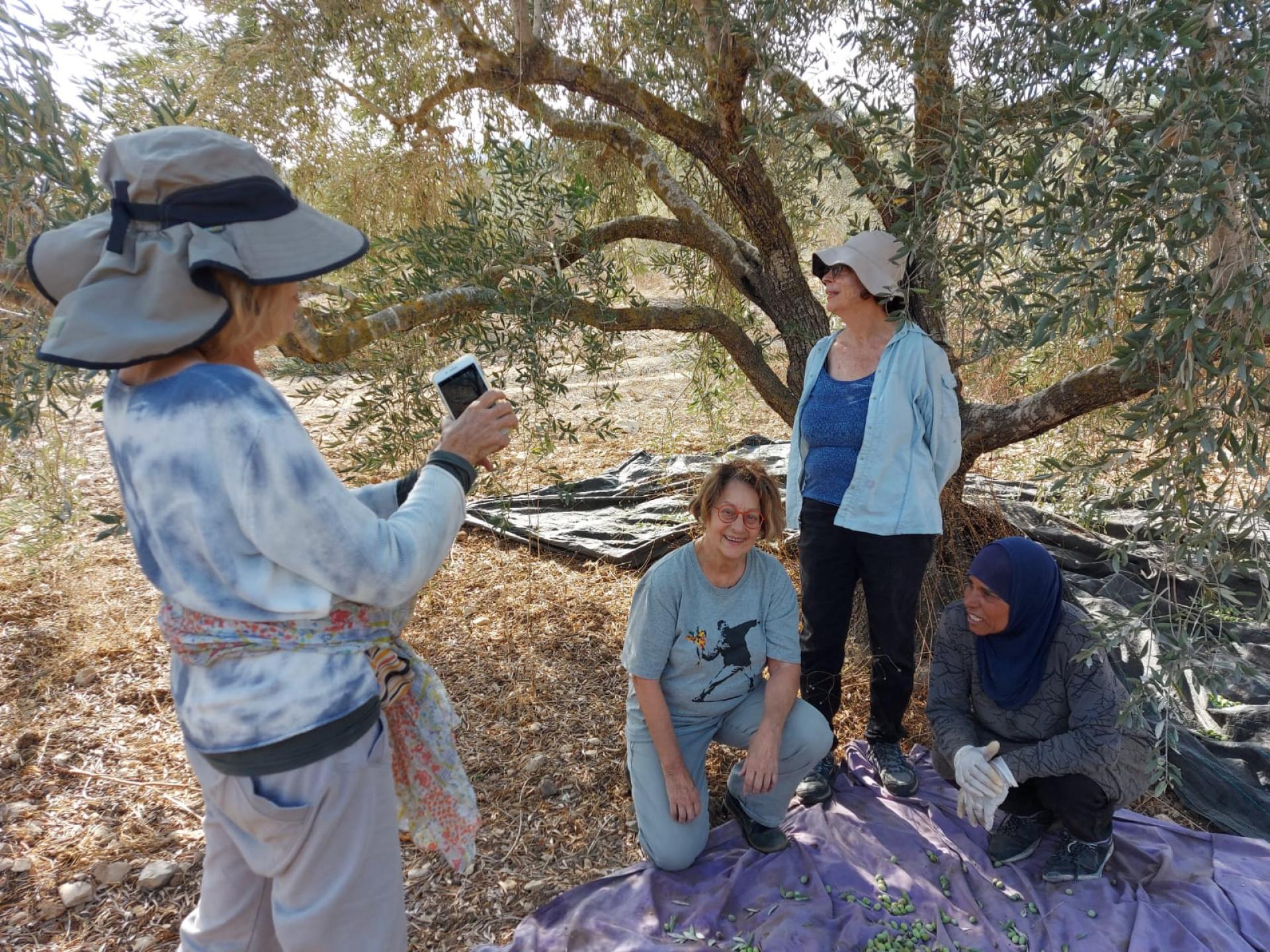Burin, olive harvest
We arrived to visit D. and harvest olives. We met in the olive grove below Yizhar. The trees haven’t a great deal of fruit, but what there is must be picked. The interesting, intimate conversation took place while we were eating. D. told us about the damage caused by the settlers and the arson of some 1200 olive trees, including 250 belonging to her. The grove belonged to her grandfather who was no longer living. She said that she’s been unable to bear children for 13 years, since the time she had a miscarriage during a demonstration against the army and the settlers after soldiers pushed her to the ground. She told us about her family: the son who has been living many years with her sister, and about her daughters. When we asked what is most important to her, she said the land. Even more than the children, we asked? She replied she’d been a fellah before she’d had children. Soldiers had killed her father when she was five years old and her family had survived in poverty with great difficulty. She’d worked in the fields since she was 13 years old. She’s dreamed all her life about her father, to sit in his lap; she’d been jealous of all the children who had a father. She sends her daughter to university and supports her studies. Her other daughter is also preparing for the matriculation exam. That’s why they didn’t join us harvesting. The son, who wasn’t interested in school, came with us.
When we left we encountered a small group of olive harvesters. The man is a member of the Burin local council, and she’s a member of Huwwara’s council. They’d finished harvesting and invited us to their home for coffee and to talk. We had to decline because we were in a hurry, but we’ll try to meet with them next time.

